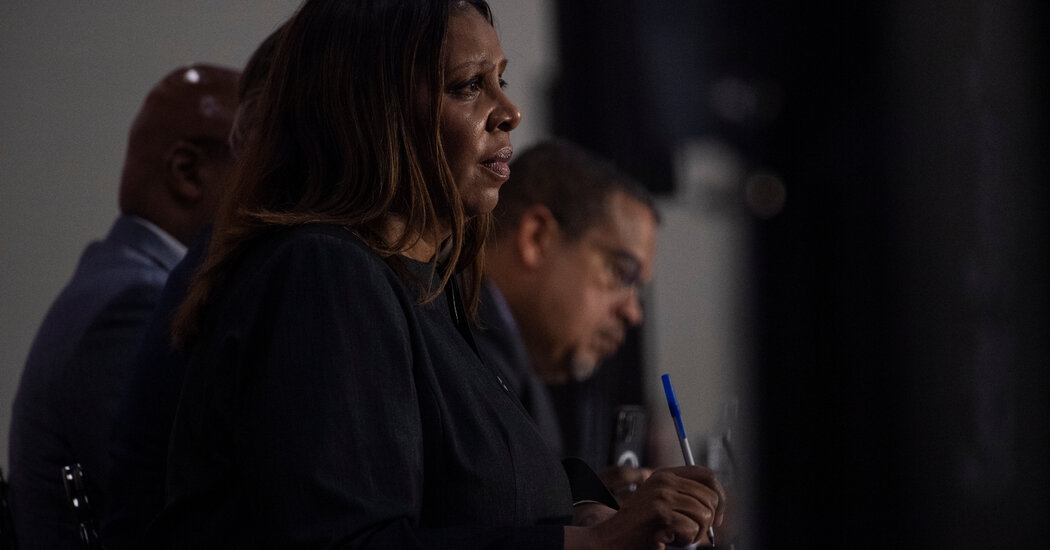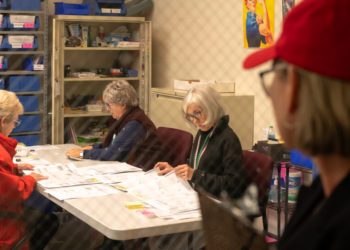New York’s attorney general, Letitia James, is set to appear in federal court in Norfolk, Va., on Friday morning for an arraignment where she is expected to plead not guilty to charges lodged by the Trump administration that she misled a bank to get more favorable mortgage terms.
The hearing for Ms. James, her first court appearance since being indicted this month, is a routine opening procedure in a prosecution that is anything but. How her case, which was pursued at President Trump’s demand over the objections of career prosecutors, plays out could hold signals for the president’s wider efforts to seek retribution against his perceived enemies.
Ms. James has said the charges against her — one count of bank fraud and one count of making a false statement to a financial institution — are “baseless.” Her indictment, she has said, is “nothing more than a continuation of the president’s desperate weaponization of our justice system.”
Ms. James stands accused of lying about her purpose in buying a house in Virginia in 2020. Prosecutors say that while she said the house would be a secondary residence, she in fact used it as a “rental investment property,” renting it to a family of three.
But Ms. James’s great-niece has lived in the house since 2020, and testified to a Norfolk grand jury that she does not pay rent. Ms. James has reported only $1,350 in rent from the property on her tax forms.
Career prosecutors in the Eastern District of Virginia who had reviewed the evidence had concluded it did not support criminal charges, but the president abruptly forced out the U.S. attorney who had been overseeing the office and replaced him with Lindsey Halligan, a White House aide who had no prosecutorial experience.
Soon after her appointment, Ms. Halligan secured a grand jury indictment against Ms. James and, in an unrelated case, false statement and obstruction charges against James B. Comey, the former F.B.I. director. Mr. Trump had publicly implored Justice Department officials to charge Ms. James and Mr. Comey with crimes, calling them “guilty as hell.” Both have been longtime antagonists of the president, and Ms. James had won a civil case for business fraud against him in New York.
Arraignments are generally brief proceedings for the defendant to enter a formal plea. But the day will also mark the beginning of Mr. Lowell’s efforts to persuade the judge to dismiss the case before it can go to trial.
On the eve of her court appearance, lawyers for Ms. James told the court that they intend to challenge the legality of Ms. Halligan’s appointment, as was already done by Mr. Comey’s legal team. The filing by Ms. James’s lawyer, Abbe D. Lowell, suggests both those efforts could be joined into a single case for a judge to hear.
Separately, Ms. James’s lawyer also asked the judge overseeing her case to warn Ms. Halligan about making any extrajudicial comments about the case. Earlier this month, Ms. Halligan sent a series of argumentative texts to a reporter at Lawfare, a national security website. In the texts, Ms. Halligan pushed back against some descriptions of the evidence, arguing that her case is stronger than some of the reporting would suggest.
“These extrajudicial statements and prejudicial disclosures by any prosecutor, let alone one purporting to be the U.S. attorney, run afoul of and violate the federal rules of criminal procedure, the code of federal regulations, this court’s local rules, various rules of ethical and professional responsibility and D.O.J.’s justice manual,” Mr. Lowell wrote.
He urged the judge to intervene “to prevent any further disclosures by government attorneys and agents of investigative and case materials, and statements to the media and public.”
Jonah E. Bromwich covers criminal justice in the New York region for The Times. He is focused on political influence and its effect on the rule of law in the area’s federal and state courts.
Devlin Barrett covers the Justice Department and the F.B.I. for The Times.
The post Letitia James to Appear in Court as Battle Over Trump-Urged Prosecution Begins appeared first on New York Times.




